🌙 6 Things You Can Do to Improve Sleep

Have you been tossing, turning, or waking up exhausted no matter how early you go to bed?
For women with PCOS, poor sleep is a vicious cycle... it raises cortisol, throws off blood sugar, and makes hormone balance even harder.
One of the most common culprits of bad sleep: STRESS!
But while “just manage your stress” is the advice we all hear, that’s easier said than done.
So instead of focusing on the one thing that feels hardest to control, try these six simpler habits that can make a surprisingly big difference in your sleep (and your hormones).
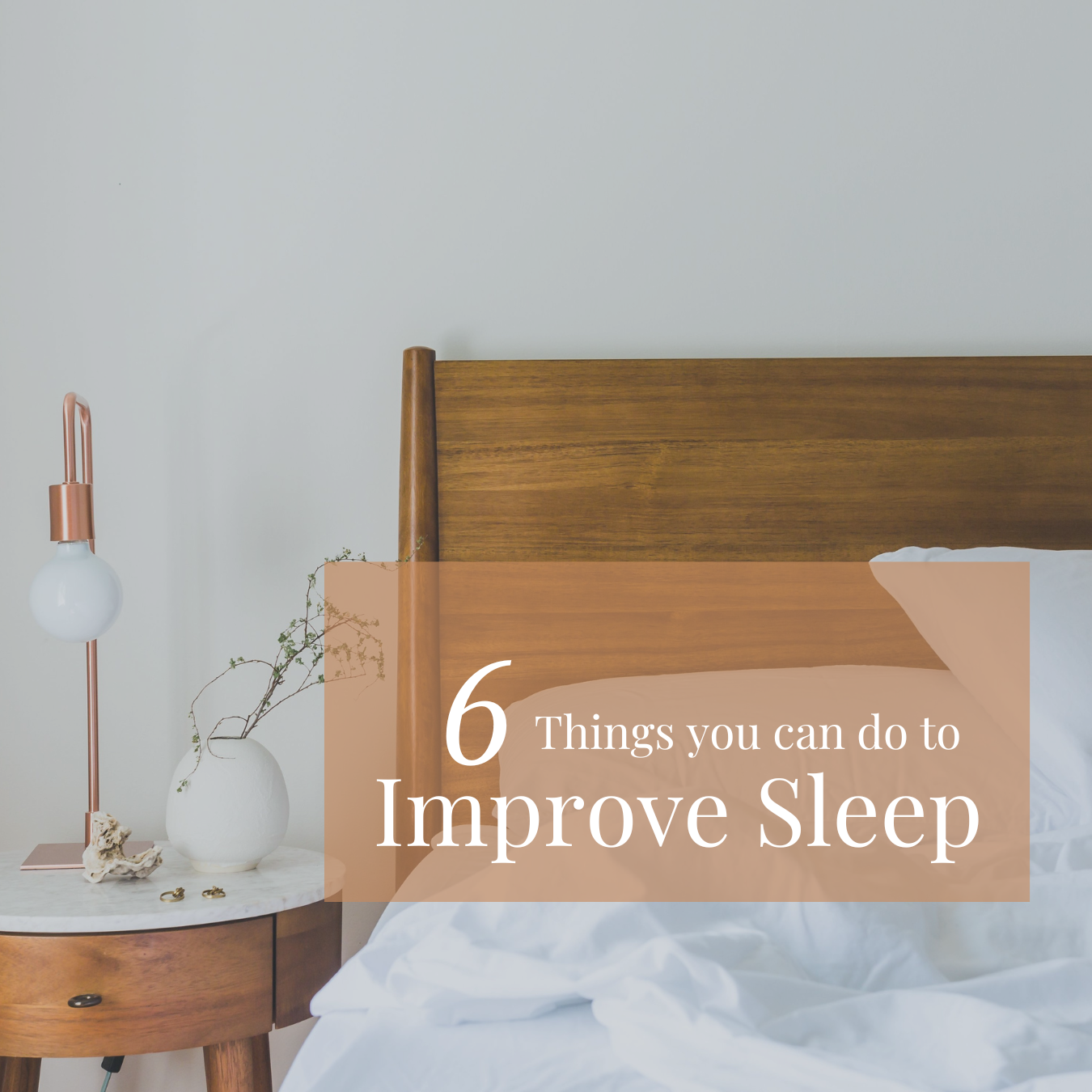
1. Limit Water After Dinner
Yes, hydration is crucial — but drinking too much right before bed can lead to those 2 a.m. bathroom wake-ups.
💧 Try to avoid liquids for 1–2 hours before bed so your bladder doesn’t interrupt deep sleep.

2. Nix Caffeine After 2 PM
Caffeine can linger in your system for hours, making it harder for your brain to wind down later.
☕ Cut it off by 2 p.m. and switch to herbal tea or sparkling water instead. You’ll fall asleep faster and sleep more deeply.
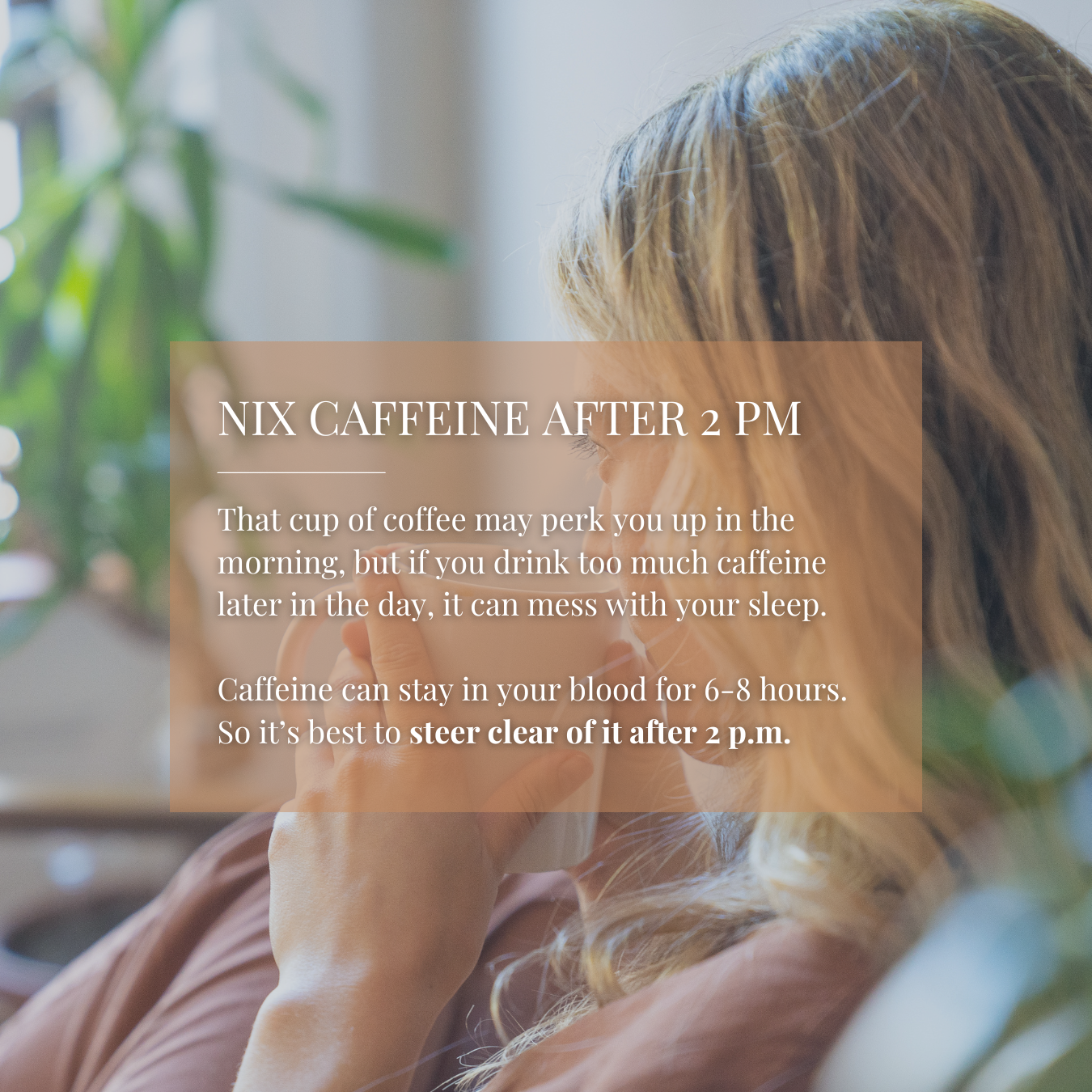
3. Avoid Evening Alcohol
That glass of wine might help you relax, but alcohol actually disrupts melatonin production — the hormone that helps you fall and stay asleep.
🍷 Try to limit alcohol late at night, or skip it altogether if sleep is a struggle.
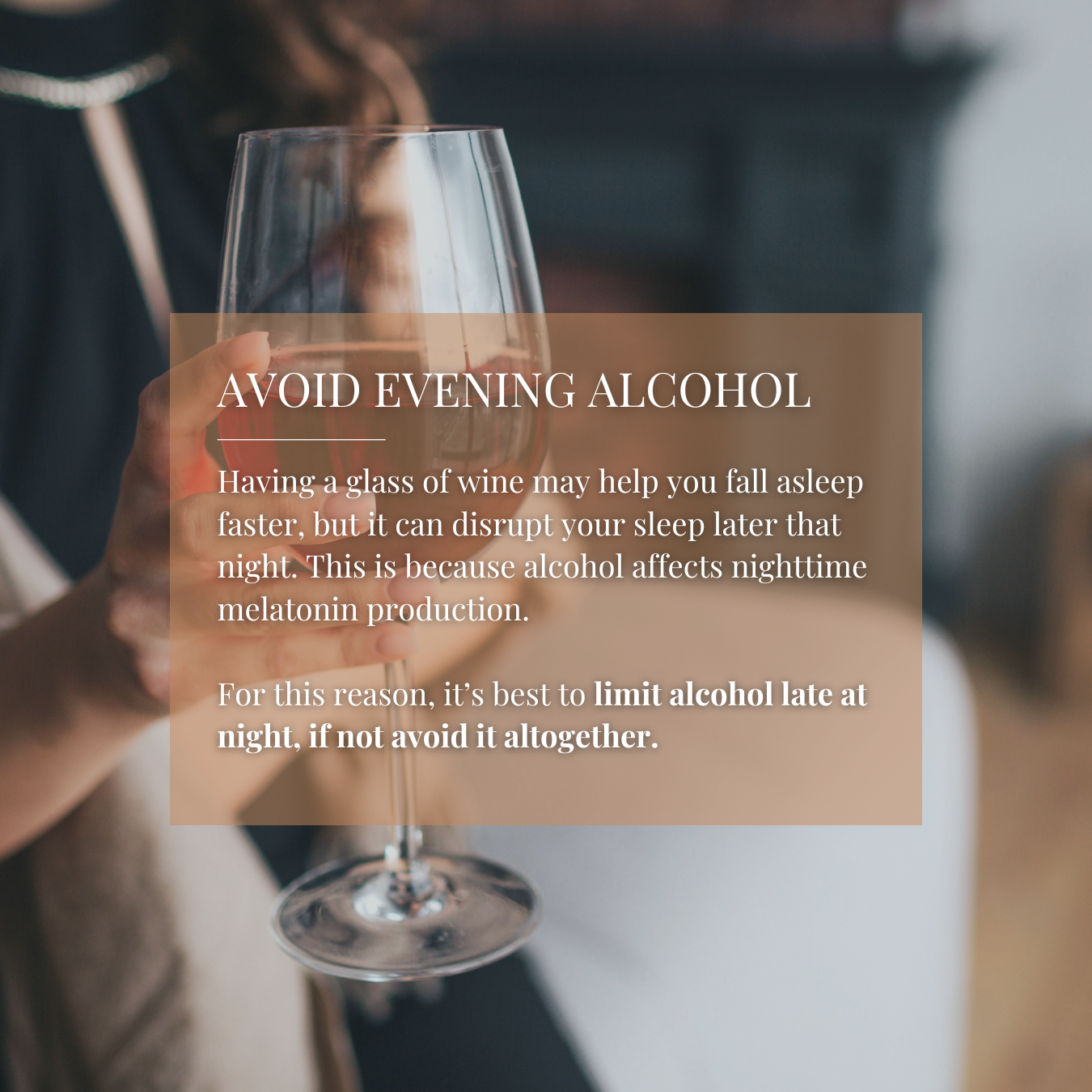
4. Exercise (But Not Too Late)
Exercise helps you sleep better, but timing matters.
🏋️♀️ Aim to finish workouts at least 1–2 hours before bed so your body has time to cool down and your nervous system can switch out of “go mode.”
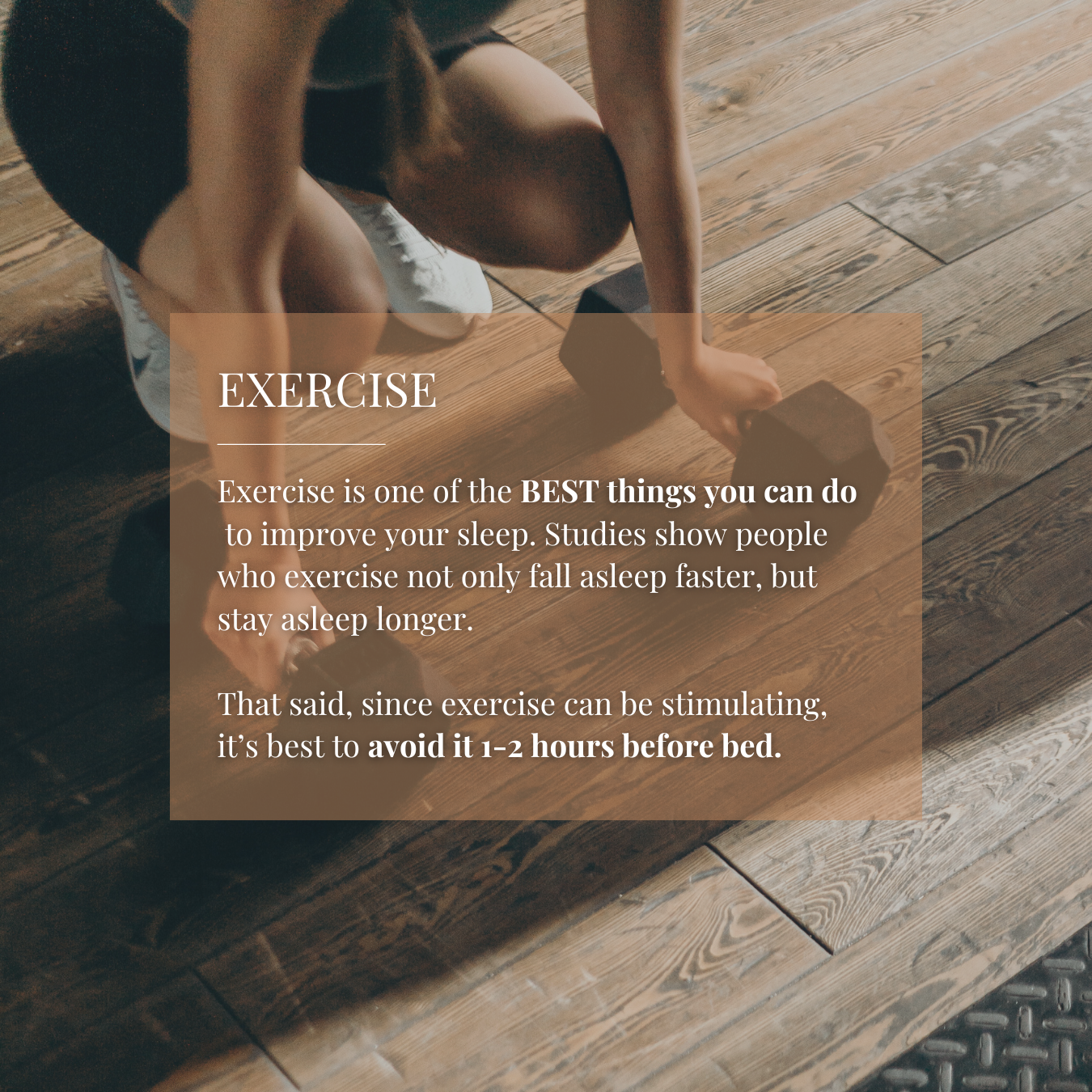
5. Be Choosy With Your Bed
Your bed should only be for sleep, sex, and sickness — that’s it.
🛏️ Watching TV, scrolling, or working from bed can confuse your brain into thinking it’s time to stay alert instead of rest.
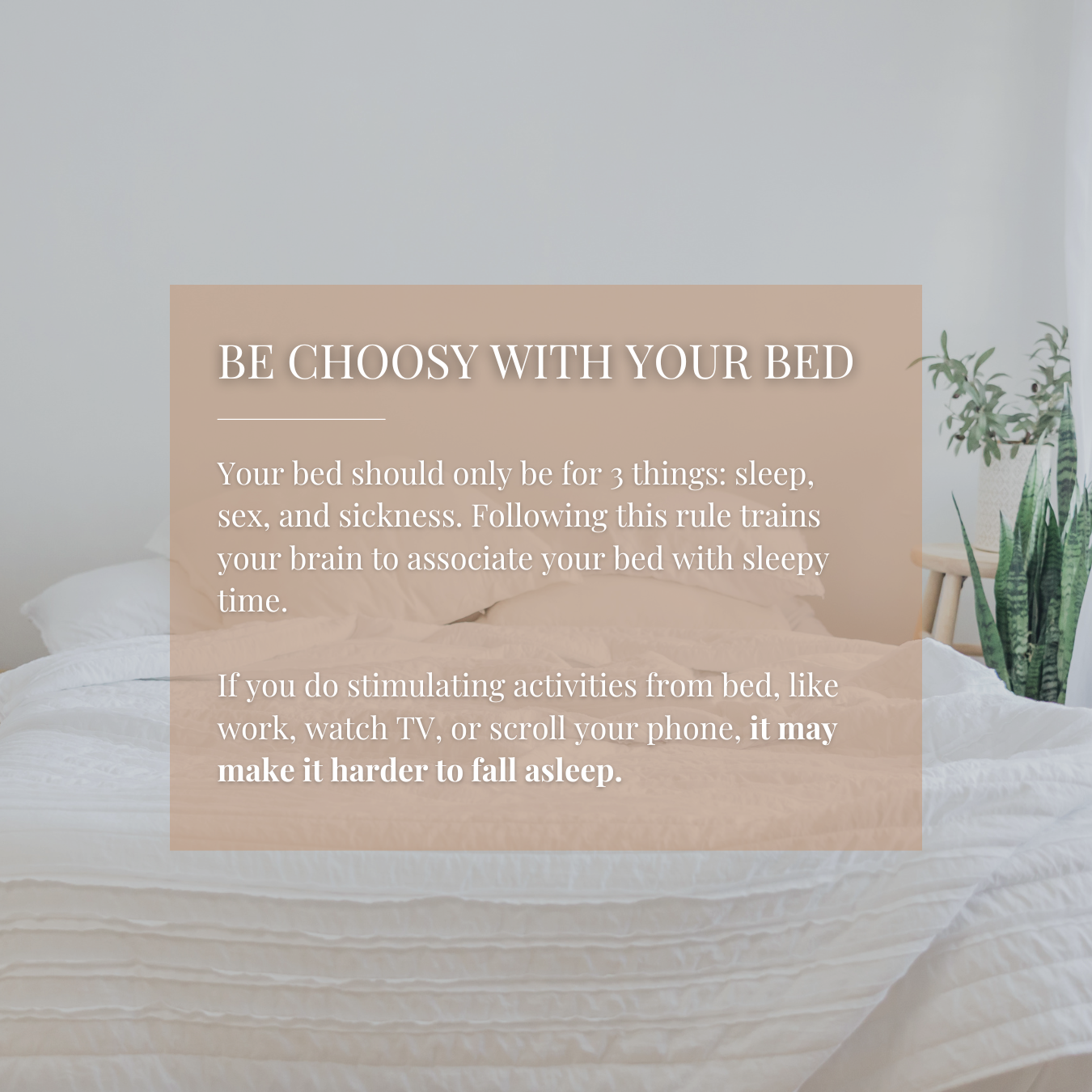
6. Don’t Eat Too Late
Eating a heavy meal right before bed can affect digestion and disrupt sleep.
🥣 Try to finish dinner 2–3 hours before bed, and if you’re hungry later, stick to a light snack like a few nuts or Greek yogurt with fruit.
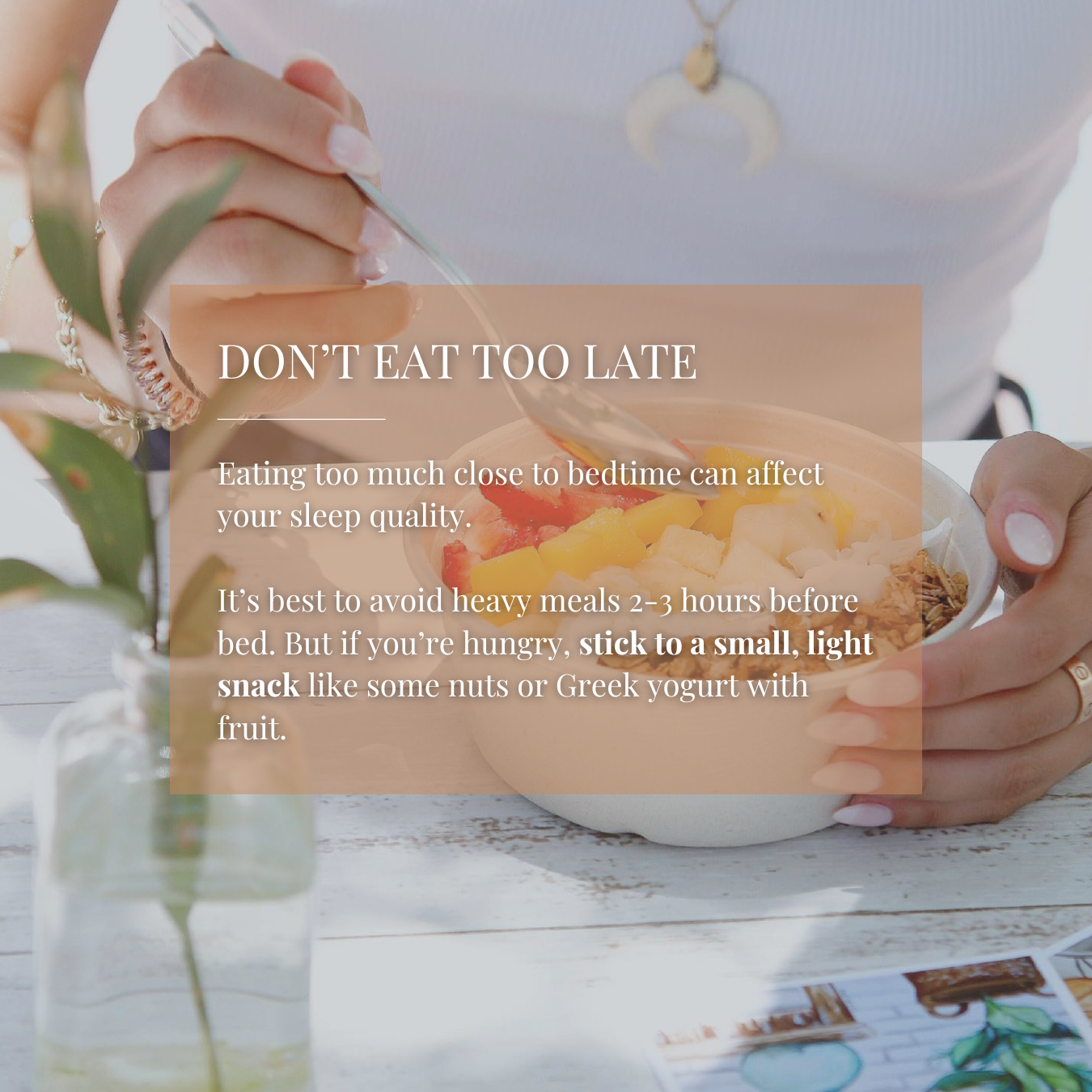
The Bottom Line
Stress is one of the biggest disruptors of sleep, and while it’s not always easy to manage, these six habits help your body shift out of that stressed, wired state so real rest can happen.
Create a calm nighttime routine that signals to your body it’s safe to relax:
🌜 Dim the lights an hour before bed
🧘🏻♀️ Do a few gentle stretches or deep breaths
✨ Read or journal instead of scrolling
🌚 Keep your bedroom cool, dark, and quiet
💤 Try to go to bed and wake up at the same time each day
You don’t have to be perfect with it, just consistent enough to make your body feel supported.
And if you’re still struggling with sleep, energy, or hormone symptoms, it might be time to address the root causes: cortisol, inflammation, and blood sugar balance. That’s exactly what we do inside PCOS Made Manageable.


